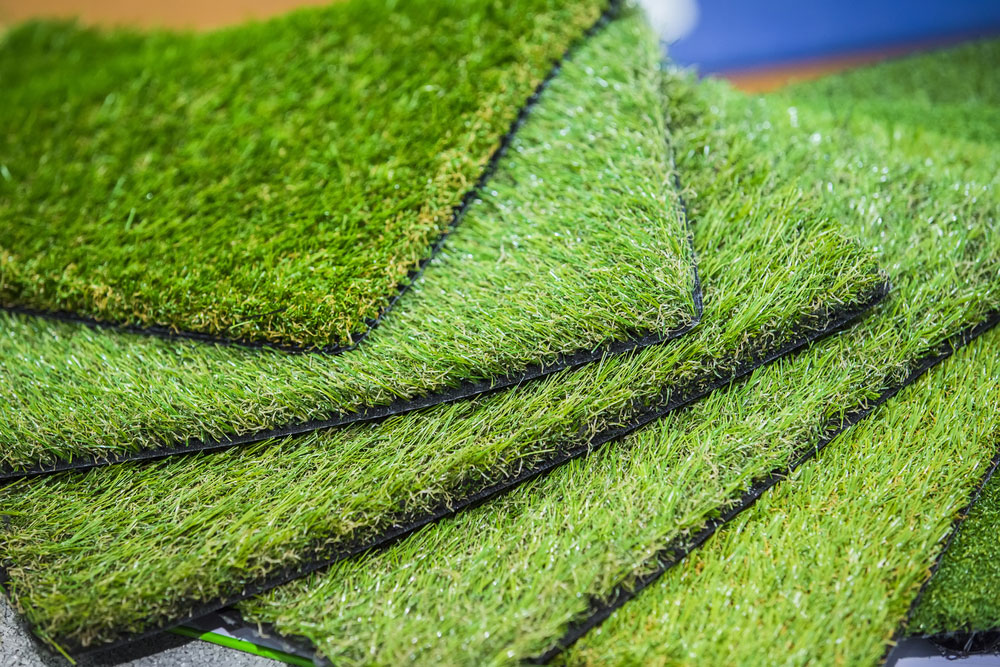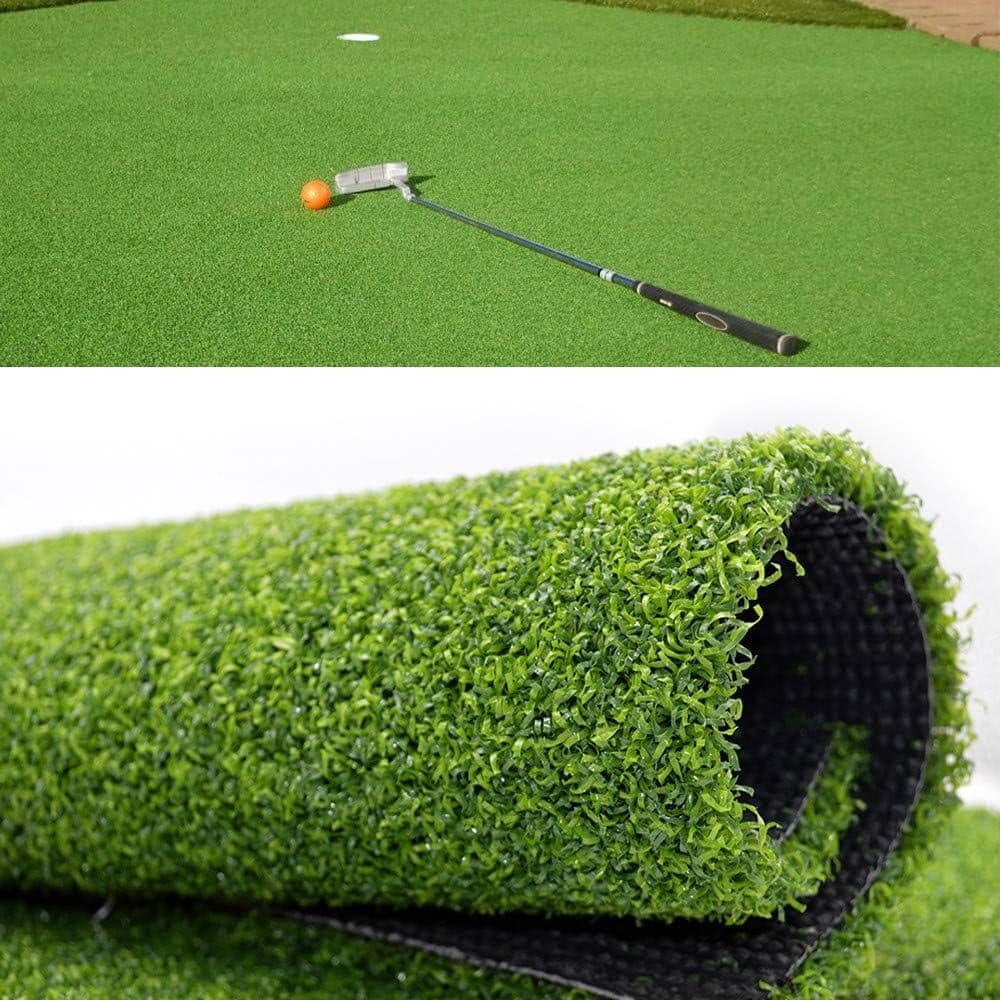Explore the Environmental Perks of Opting for Artificial Lawn Solutions
The adoption of synthetic grass services offers an engaging opportunity to attend to pressing environmental obstacles. By significantly decreasing water usage and minimizing the application of dangerous chemicals, these choices not just advertise sustainable landscaping but likewise secure neighborhood environments. Moreover, the lower carbon footprint related to lowered maintenance activities adds to a more sustainable technique to land monitoring. Nevertheless, the ramifications of these advantages prolong past simple conservation efforts, questioning concerning their lasting effect on environment conservation and total environmental balance. Exploring these dimensions discloses an intricate interaction worth thinking about.
Water Preservation Perks
One of the most considerable advantages of artificial lawn is its ability to preserve water. In comparison, synthetic lawn does not require watering, dramatically decreasing the overall need for water sources.
By removing the demand for regular watering, fabricated grass adds to sustainable landscape practices and aids minimize the ecological effect of too much water consumption. The conservation of water expands to the reduction of drainage, which can lead to soil disintegration and waterway pollution.
Additionally, the setup of synthetic grass permits communities and home owners to allocate water sources much more effectively, concentrating on important uses such as alcohol consumption water and farming. The shift towards man-made lawn not only advertises responsible water use yet also lines up with wider ecological goals targeted at preserving all-natural resources.
As neighborhoods increasingly focus on sustainability, the water preservation benefits of synthetic grass offer an engaging instance for its adoption in business and residential landscaping tasks.
Reduced Chemical Usage
The change to synthetic grass substantially lowers the dependence on chemical therapies frequently utilized in natural yard maintenance. Typical turf monitoring commonly involves the application of herbicides, fertilizers, and pesticides to promote growth and control bugs. These chemicals can present threats to human wellness, neighborhood wildlife, and the setting, adding to dirt and water contamination.
In comparison, fabricated turf gets rid of the need for these dangerous substances. By reducing the release of artificial compounds right into the community, artificial lawn advertises healthier soil and water systems.
Additionally, the absence of chemical runoff linked with man-made grass installations assists shield local rivers from air pollution, sustaining aquatic life and maintaining biodiversity. Turf installation phoenix az. As neighborhoods significantly prioritize lasting techniques, selecting synthetic grass presents a sensible service that aligns with ecological conservation goals. Through this shift, homeowner can delight in rich environment-friendly areas without endangering ecological health, leading the way for a much more sustainable future
Lower Carbon Impact

In addition, the setup of artificial turf can lead to considerable water preservation. Natural grass require considerable amounts of water for irrigation, which not only includes to the carbon footprint linked with water extraction and treatment yet also stress local water sources. In comparison, synthetic grass needs minimal upkeep, calling for no watering, thereby considerably decreasing water use and its associated power costs.
Additionally, the longevity of synthetic grass adds to its decreased carbon effect. With a life-span of as much as 15 years or even more, the demand for regular substitutes is reduced, causing much less waste and reduced energy intake in production and getting rid of typical lawn alternatives. Generally, synthetic grass presents a sustainable option for ecologically aware landscaping.
Habitat Conservation
Environment preservation is an important factor to consider in the argument over landscaping options, specifically when comparing synthetic turf to all-natural lawn. Natural lawn yards commonly need comprehensive upkeep, including making use of herbicides, plant foods, and pesticides, which can negatively influence local environments. These chemicals can seep into the soil and view publisher site rivers, damaging indigenous plants and animals and interrupting regional habitats.
Fabricated turf gets rid of the need for damaging chemicals, therefore safeguarding close-by wildlife and maintaining the integrity of surrounding environments. The setup of fabricated turf can lead to the conversion of former lawn areas into even more biodiverse landscapes, such as pollinator gardens or native plant areas, which can support local wildlife.
Ultimately, the transition to synthetic grass not site just preserves water and minimizes upkeep efforts but also fosters an extra unified partnership in between human tasks and the native environment, advertising environment conservation while doing so.
Long-Term Sustainability
Long-lasting sustainability is a crucial aspect in evaluating the advantages of synthetic grass over typical lawn yards. One of one of the most substantial benefits of man-made lawn is its sturdiness; it can last approximately 15-20 years with minimal maintenance, whereas all-natural yard calls for constant reseeding and substitute. This longevity decreases the requirement for consistent sources, such as water, fertilizers, and chemicals, which are essential for preserving a healthy grass lawn.
In addition, synthetic grass adds to a decrease in carbon emissions connected with lawn treatment equipment. Standard lawns often need gas-powered mowers, leaners, and blowers, every one of which add to air pollution. Artificial turf companies phoenix. In contrast, synthetic grass gets rid of the requirement for such tools, promoting a cleaner environment
Moreover, the production of artificial grass progressively uses recycled materials, enhancing its sustainability account. As makers embrace green techniques, the ecological footprint of synthetic grass continues to reduce.

Verdict
The fostering of synthetic grass services provides substantial ecological benefits, consisting of considerable water preservation, minimized reliance on hazardous chemicals, and a reduced carbon footprint. Fabricated turf help in preserving natural environments by minimizing land disruption and advertising long-term sustainability via the use of long lasting products. Collectively, these variables underscore the capacity of artificial lawn to contribute favorably to environmental wellness and use a practical alternative to typical landscape design practices in a progressively resource-conscious globe.
In comparison, artificial lawn does not require watering, considerably lowering the general demand for water resources. By decreasing the release of artificial compounds into the ecosystem, fabricated lawn promotes much healthier dirt and water systems.
Furthermore, the setup of artificial lawn can result in substantial water preservation. In comparison, fabricated lawn needs very little upkeep, requiring no watering, thus substantially lowering water use and its associated power prices.
